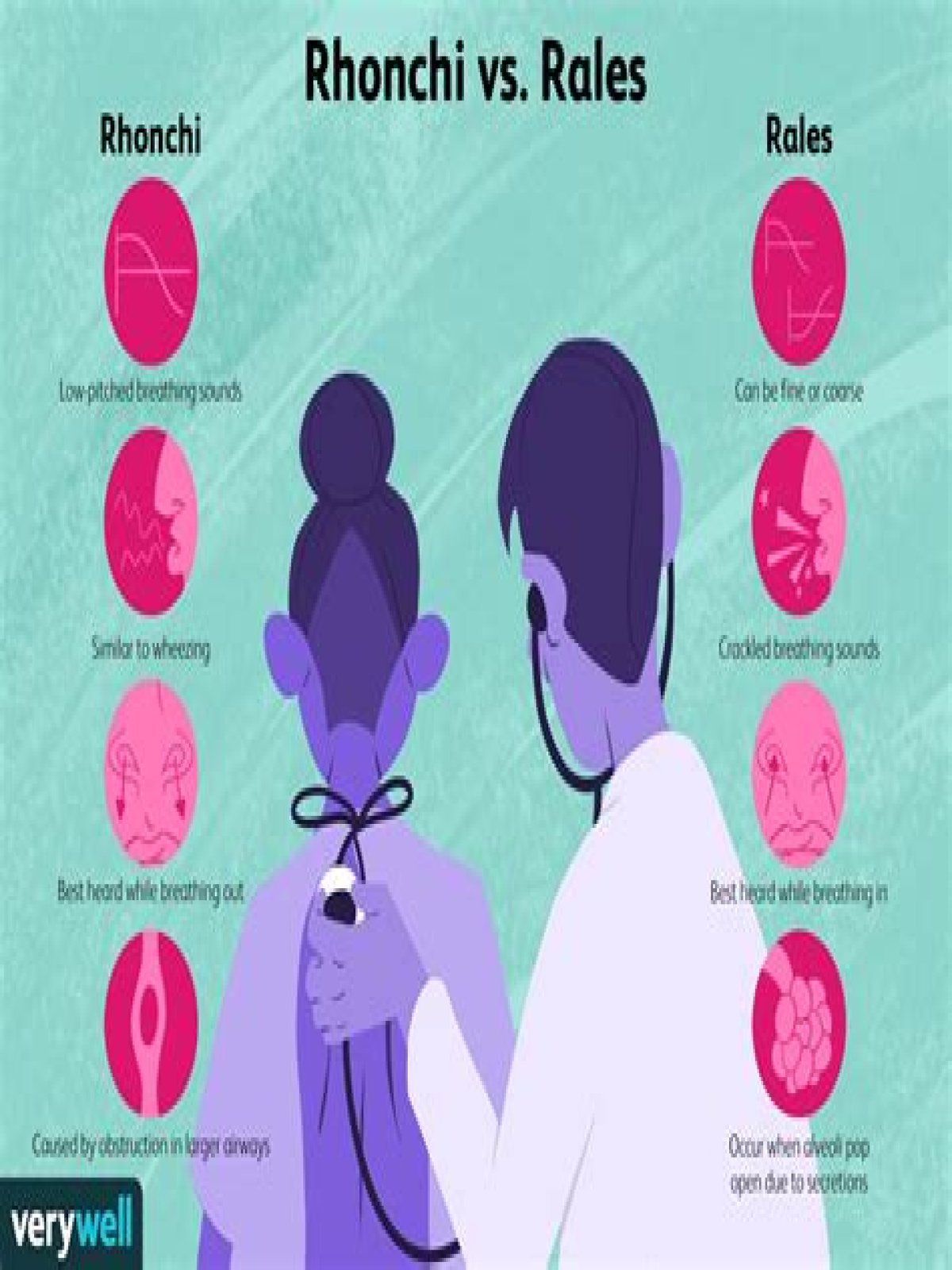Also to know is, what do Rhonchi mean?
Rhonchi are rattling, continuous and low-pitched breath sounds that are often hear to be like snoring. Rhonchi are also called low-pitched wheezes. They are often caused by secretions in larger airways or obstructions.
Also Know, what causes Rales in the lungs? Crackles are the clicking, rattling, or crackling noises that may be made by one or both lungs of a human with a respiratory disease during inhalation. Crackles are caused by the "popping open" of small airways and alveoli collapsed by fluid, exudate, or lack of aeration during expiration.
Similarly one may ask, what do Rales sound like?
Rales are abnormal lung sounds that are rattling sounds or like a Velcro fastener being opened. They can sound like crinkled paper or salt in a hot frying pan. Rales are caused by the opening of small airways and alveoli.
Is Rhonchi serious?
Rhonchi are low-pitched wheezes or snore-like sounds that can be heard with a stethoscope. Their presence means an obstruction or an increased amount of secretions is in the airways. Rhonchi can be caused by pneumonia, cystic fibrosis, or COPD.
Can Rhonchi be heard without stethoscope?
Is Rhonchi heard on inspiration or expiration?
What type of lung sounds are heard with pneumonia?
Where is Rhonchi usually heard?
What does a COPD cough sound like?
Can hear crackling breath sounds exhale?
What are abnormal breath sounds?
What causes crackling?
What is Rhonchi a sign of?
Why do doctors tap your back?
Can you feel Rales?
How do you know if you have fluid in your lungs?
- shortness of breath when being physically active.
- difficulty breathing when lying down.
- wheezing.
- waking up at night with a breathless feeling that goes away when you sit up.
- rapid weight gain, especially in the legs.
- swelling in the lower part of the body.
- fatigue.
